-
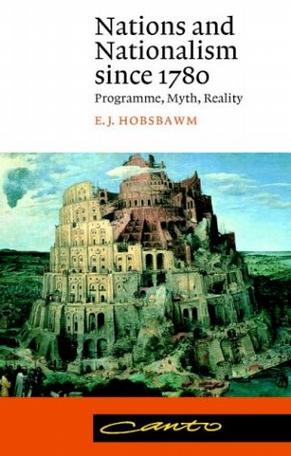
Nations and Nationalism since 1780
Eric Hobsbawm's brilliant enquiry into the question of nationalism won further acclaim for his 'colossal stature ... his incontrovertible excellence as an historian, and his authoritative and highly readable prose'. Recent events in Eastern Europe and the former Soviet republics have since reinforced the central importance of nationalism in the history of political evolution and upheaval. This second edition has been updated in the light of those events, with a final chapter addressing the impact of the dramatic changes that have taken place. It also includes additional maps to illustrate nationalities, languages and political divisions across Europe in the nineteenth and twentieth centuries. -
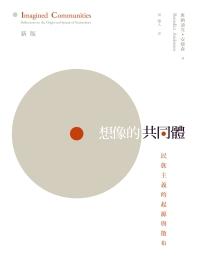
想像的共同體
民族主義研究的必讀經典 《想像的共同體》自1983年問世以來,不但使學界對民族與民族主義課題的思考角度產生哥白尼式的徹底翻轉,其深刻影響也廣及人文與社會學科的各個領域。除了被譯成三十一種語言出版之外,甚至成為一種近乎教科書的作品,遠遠超乎作者的預料。 安德森從文化內涵的改變與印刷資本主義的興起來探討民族主義的源起,並辨析民族主義在美洲誕生,被歐洲的群眾運動挪用,被帝國政權吸納,再到亞非兩洲以民族主義為號召的反帝國主義抗爭的數百年過程。 此次中文增訂版收錄了安德森於2006年新添的一章,概略檢視了此書所造成的影響,並探討此書在世界各地的出版與反應情況;另外更收錄了2003年作者兩篇關於臺灣處境的研討會講稿,以及譯者訪談這位學術大師的深情記敘。 -
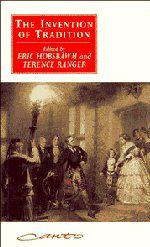
The Invention of Tradition
Many of the traditions which we think of as very ancient in their origins were not in fact sanctioned by long usage over the centuries, but were invented comparatively recently. This book explores examples of this process of invention - the creation of Welsh and Scottish ‘national culture’; the elaboration of British royal rituals in the nineteenth and twentieth centuries; the origins of imperial rituals in British India and Africa; and the attempts by radical movements to develop counter-traditions of their own. It addresses the complex interaction of past and present, bringing together historians and anthropologists in a fascinating study of ritual and symbolism which poses new questions for the understanding of our history. -
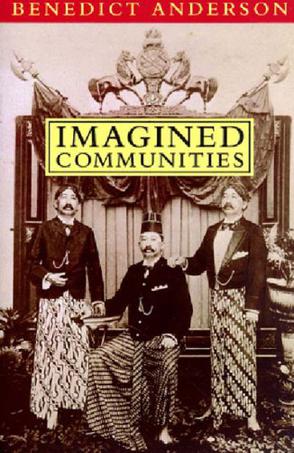
Imagined Communities
What makes people love and die for nations, as well as hate and kill in their name? While many studies have been written on nationalist political movements, the sense of nationality - the personal and cultural feeling of belonging to the nation - has not received proportionate attention. In this widely acclaimed work, Benedict Anderson examines the creation and global spread of the 'imagined communities' of nationality. Anderson explores the processes that created these communities: the territorialisation of religious faiths, the decline of antique kingship, the interaction between capitalism and print, the development of vernacular languages-of-state, and changing conceptions of time. He shows how an originary nationalism born in the Americas was modularly adopted by popular movements in Europe, by the imperialist powers, and by the anti-imperialist resistances in Asia and Africa. This revised edition includes two new chapters, one of which discusses the complex role of the colonialist state's mindset in the development of Third World nationalism, while the other analyses the processes by which all over the world, nations came to imagine themselves as old. -
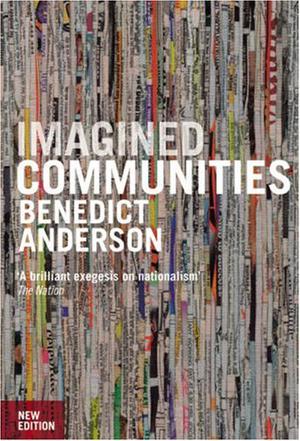
Imagined Communities
The definitive, bestselling book on the origins and development of nationalism. Imagined Communities, Benedict Anderson's brilliant book on nationalism, forged a new field of study when it first appeared in 1983. Since then it has sold over a quarter of a million copies and is widely considered the most important book on the subject. In this greatly anticipated revised edition, Anderson updates and elaborates on the core question: what makes people live, die and kill in the name of nations? He shows how an originary nationalism born in the Americas was adopted by popular movements in Europe, by imperialist powers, and by the anti-imperialist resistances in Asia and Africa, and explores the way communities were created by the growth of the nation-state, the interaction between capitalism and printing, and the birth of vernacular languages-of-state. Anderson revisits these fundamental ideas, showing how their relevance has been tested by the events of the past two decades. -
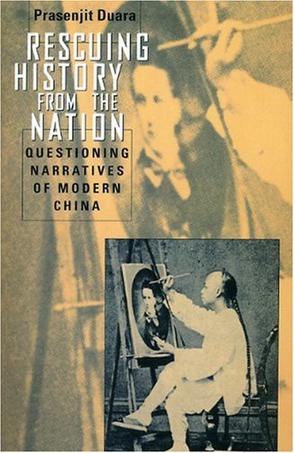
Rescuing History from the Nation
Prasenjit Duara offers the first systematic account of the relationship between the nation-state, nationalism, and the concept of linear history. Focusing primarily on China and including discussion of India, Duara argues that many historians of postcolonial nation-states have adopted a linear, evolutionary history of the Enlightenment/colonial model. As a result, they have written repressive, exclusionary, and incomplete accounts. The backlash against such histories has resulted in a tendency to view the past as largely constructed, imagined, or invented. In this book, Duara offers a way out of the impasse between constructionism and the evolving nation; he redefines history as a series of multiple, often conflicting narratives produced simultaneously at national, local, and transnational levels. In a series of closely linked case studies, he considers such examples as the very different histories produced by Chinese nationalist reformers and partisans of popular religions, the conflicting narratives of statist nationalists and of advocates of federalism in early twentieth-century China. He demonstrates the necessity of incorporating contestation, appropriation, repression, and the return of the repressed subject into any account of the past that will be meaningful to the present. Duara demonstrates how to write histories that resist being pressed into the service of the national subject in its progress—or stalled progress—toward modernity.